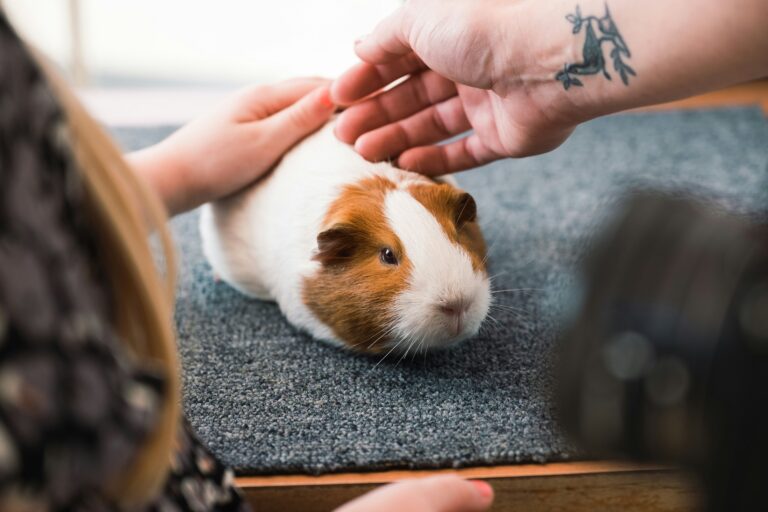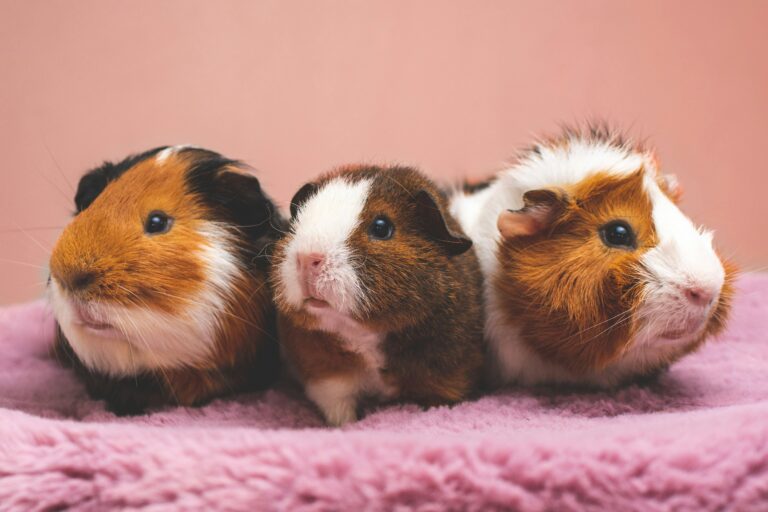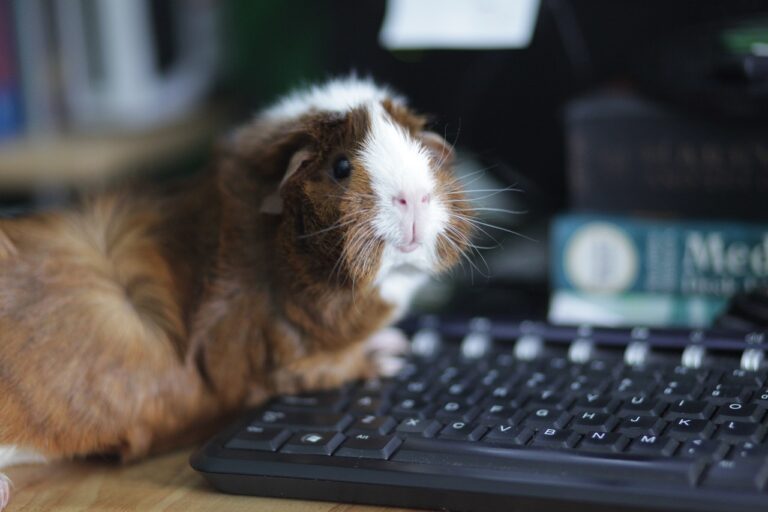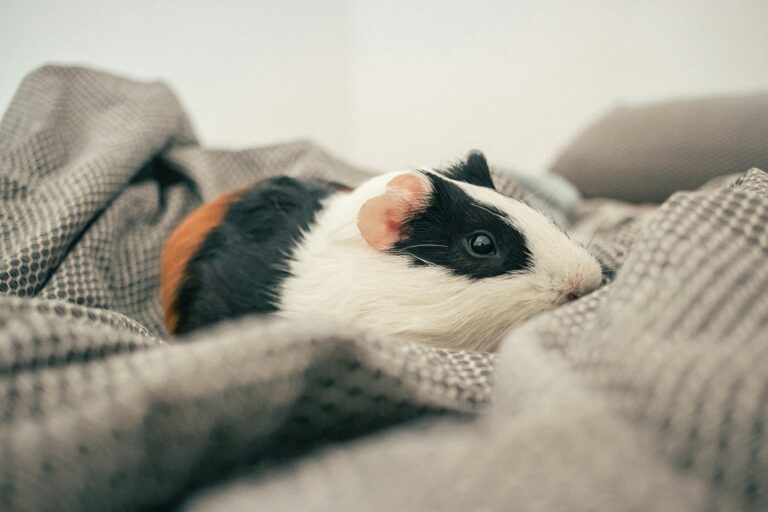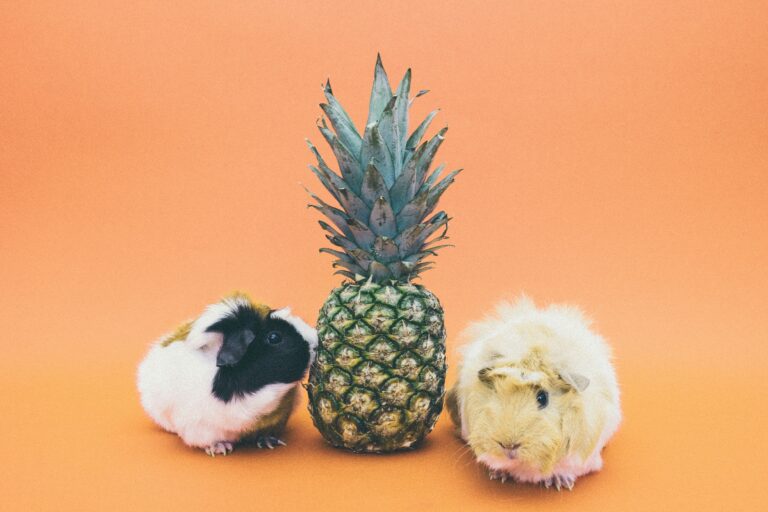How to Take Care of your Guinea Pig’s Teeth
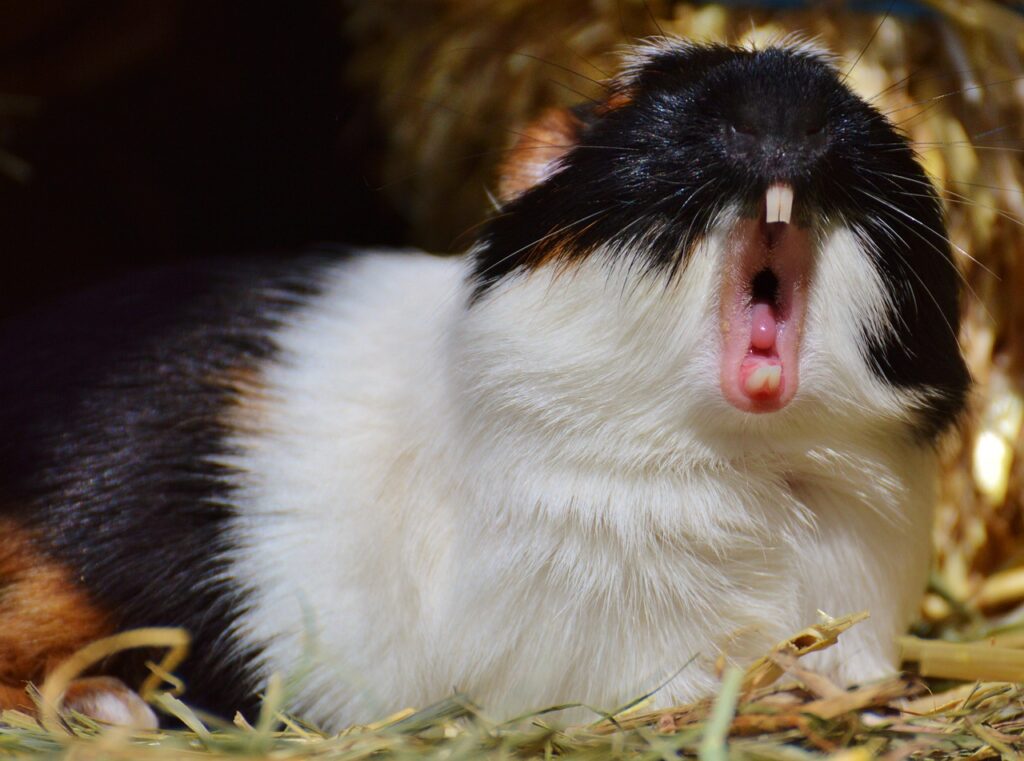
Guinea pigs are popular pets that are known to be fairly low maintenance! Even so, they still require diligent care, especially when it comes to their dental health.
Dental issues in guinea pigs can lead to serious health problems if left untreated. Therefore, it is crucial for pet owners to understand the importance of proper dental care for their furry friends.
In this guide, we’ll delve into everything you need to know about taking care of your guinea pig’s teeth to ensure their overall well-being and happiness!
Understanding Guinea Pig Dental Anatomy
Before diving into dental care practices, it’s essential to grasp the basics of guinea pig dental anatomy. Guinea pigs are rodents, and like other rodents, they possess continuously growing teeth. Their front teeth, known as incisors, are visible and used for cutting and grasping food. Behind the incisors are the molars and premolars, which are not visible as they are located in the back of the mouth. These teeth are crucial for grinding and chewing food. In total, guinea pigs have 20 teeth!
Unlike other rodents, healthy guinea pig teeth are white, instead of yellow!
Signs of Dental Problems
Observing your guinea pig’s behavior and physical appearance can provide valuable insights into their dental health. Signs of dental problems in guinea pigs may include:
- Decreased appetite or reluctance to eat.
- Weight loss.
- Drooling or wet chin.
- Difficulty chewing or dropping food.
- Grinding teeth.
- Overgrown or misaligned incisors.
- Facial swelling.
- Red or inflamed gums.
If you notice any of these signs, it’s essential to seek veterinary attention promptly to prevent further complications.
Dietary Considerations
A proper diet is fundamental to maintaining your guinea pig’s dental health. Guinea pigs are herbivores, which means their diet should primarily consist of high-quality hay, and guinea pig pellets and fresh vegetables in moderation.
- Hay: Timothy hay is an excellent choices for guinea pigs. Hay provides the necessary fiber for healthy digestion and wears down their continuously growing teeth as they chew.
- Pellets: Choose high-quality guinea pig pellets that are specifically formulated to meet their nutritional needs. However, you should only feed the recommended amount of pellets for your guinea pig’s age and weight to prevent obesity and dental issues.
- Fresh Vegetables: Incorporate a variety of fresh vegetables into your guinea pig’s diet, such as leafy greens (e.g., romaine lettuce, spinach, kale), bell peppers, and cucumbers. These vegetables not only provide essential nutrients but also aid in wearing down their molars through chewing.
- Avoid Sugary Treats: Sugary treats such as fruits should be given sparingly, as treats only. Excessive sugar consumption can contribute to dental problems and obesity in guinea pigs. Avoid feeding commercial treats and processed foods.
Chewing
Guinea pigs have a natural instinct to chew, which is essential for maintaining their dental health. Providing appropriate chew toys and materials can help satisfy this instinct while promoting dental wear.
- Timothy Hay-Based Toys: Offer chew toys made from Timothy hay or other safe, natural materials. These toys not only encourage chewing but also provide mental stimulation and enrichment for your guinea pig.
- Wooden Chew Blocks: Wooden chew blocks or sticks made from safe, untreated wood (e.g., apple, pear, willow) are ideal for guinea pigs to gnaw on. Avoid cedar or pine wood as they may contain harmful chemicals.
- Cardboard Tubes: Empty cardboard tubes from toilet paper or paper towel rolls make inexpensive and safe chew toys for guinea pigs. However, remove any adhesive or tape before offering them to your pet.
Regular Dental Check-ups
Routine dental check-ups by a qualified veterinarian are essential for monitoring your guinea pig’s dental health and addressing any issues promptly. During a dental examination, the vet will inspect your guinea pig’s teeth for signs of overgrowth, malocclusion, or other abnormalities.
- Frequency: Schedule a dental check-up for your guinea pig at least once a year or as recommended by your veterinarian. Older guinea pigs or those with a history of dental problems may require more frequent examinations.
- Professional Trimming: If your guinea pig’s incisors become overgrown or misaligned, your veterinarian may need to trim them under sedation. Attempting to trim your guinea pig’s teeth at home can be dangerous and should only be done by a qualified professional.
- X-rays: In some cases, dental X-rays may be necessary to assess the condition of your guinea pig’s molars and detect any underlying dental issues such as abscesses or root elongation.
Home Dental Care
In addition to veterinary care, there are steps you can take at home to promote your guinea pig’s dental health and hygiene.
- Provide Clean Water: Ensure your guinea pig has access to fresh, clean water at all times. Hydration is crucial for overall health, including dental health.
- Maintain Clean Bedding: Dirty bedding can harbor bacteria and contribute to dental problems. Clean your guinea pig’s cage regularly and provide fresh bedding to keep their environment clean and hygienic.
- Monitor Chewing Behavior: Pay attention to your guinea pig’s chewing habits and ensure they have access to appropriate chew toys and materials. If you notice changes in their chewing behavior, consult your veterinarian.
- Handle with Care: Handle your guinea pig gently and avoid rough handling or accidents that could potentially injure their teeth or mouth.
Conclusion
Taking care of your guinea pig’s teeth is essential for their overall health and well-being. By providing a proper diet, offering appropriate chew toys, scheduling regular veterinary check-ups, and practicing good home dental care, you can help ensure that your furry friend enjoys a lifetime of healthy teeth and gums!
Remember to monitor their dental health closely and seek prompt veterinary attention if you notice any signs of dental problems.
With proper care and attention, you can help your guinea pig maintain a happy and healthy smile for years to come!

